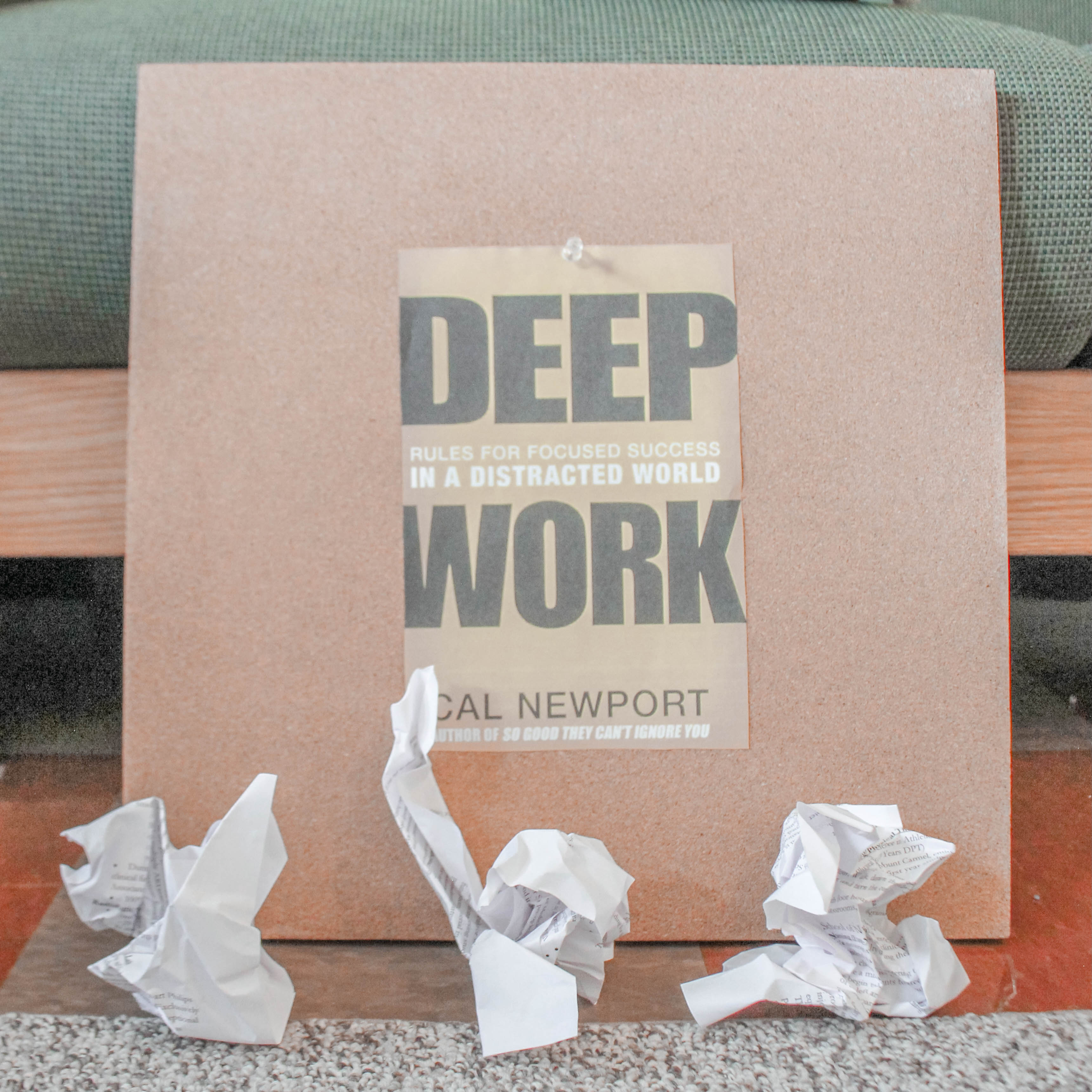What would you do to further your professional and personal success?
There are many steps that you can take to ensure a better career. But according to Cal Newport, one of the most important is the practice of deep work. This is a particular type of study where an individual eliminates all distractions to allow for a more fruitful work experience. Newport is so passionate about this idea, that he wrote all about it in a book titled Deep Work.
In theory, this sounds like it could be easy, however, many of the tools we now use for work can cause the distractions you are hoping to avoid. The computer you use to type and practice has access to a multitude of apps and content just a finger swipe away. I’ve personally experienced moments when the content of my study was boring and I succumbed to just momentarily checking Facebook. These small distractions eliminate the effectiveness of deep work. Instead many of us accidentally participate in shallow work— doing logical-style tasks while distracted, often resulting in less impressive and unique outcomes. So, to practice deep work an integral step is to unplug and step away from your devices.
I’m not going to lie, the idea of going unplugged for work stresses me out. So if you feel the same, you are not alone. This is especially true since my area of study is so closely connected with the digital world. My graphic design skills are developed using computer programs such as the Adobe Suite. Plus, I often find inspiration for projects using Pinterest and other online databases. As I was reading Newport’s work, I started to wonder how I could apply deep work to my field. It might be too big a leap for me to go from using my devices all the time to being completely unplugged. Newport does recognize that for many of us deep work is hard to achieve. We have spent so much time being dependent on technology that changing our work technique is only achieved by those who spend the time forcing themselves to do it.
Although I don’t see myself spending my time in a room without the internet like Jason Benn, or having a hideaway like Carl Jung, there are small steps that I will try to work towards learning the skill. Instead of finding my inspiration from the internet, I can be inspired by nature and the world around me. I can work on learning skills and writing them down in my sketchbook. Then I can use those brainstorms and skills and apply them back to my technological-dependent work. Plus, even when writing this blog I’ve hidden my phone away from me. Of course, I know where it is, but not having it in my sight helps me focus.
You may be asking yourself if deep work is so hard for digital natives, is it really worth it?
Well, I have been able to write this blog post with amazing speed since I just logged on and started to focus. Plus many others have found success according to Newton. I want to become a superstar in my field, and if deep work will help me get there I don’t see the harm in trying. It is important to mention that you can’t just get rid of distractions, but you have to have focus and give your work the time it needs. In fact, Newton believes the formula for high-quality work is (Time Spent) x (Intensity of Focus). So in addition to eliminating your phone and other devices, you have to set aside time to concentrate and experiment with your medium.
Deep work isn’t an easy practice but it ultimately can and will improve the quality of your work. In a society and time when there is so much competition, every advantage helps. Therefore while in this graduate program, I will be trying to implement some of the practices and tips Cal Newport supplies.


